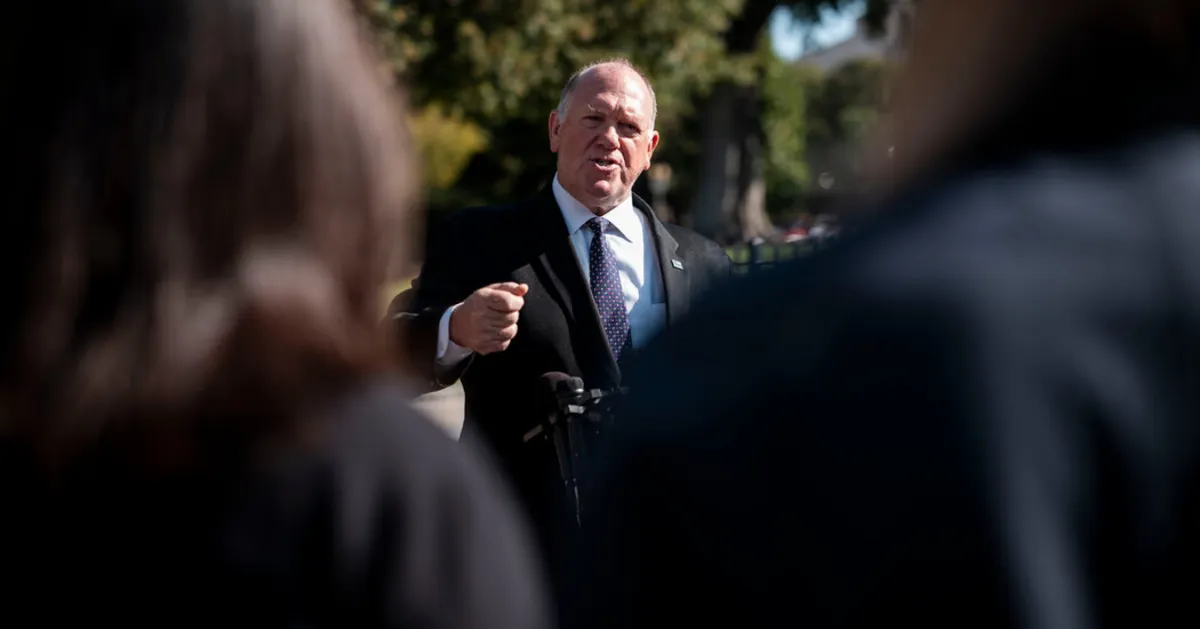
In September 2024, Tom Homan, who later became known as President Trump’s border czar, found himself at the center of a controversial undercover investigation led by the F.B.I. According to sources familiar with the case, Homan was recorded accepting a bag containing $50,000 in cash, a development that raised serious questions about potential bribery and conflicts of interest. This cash payment, delivered in a bag from the popular food chain Cava, was part of a long-running counterintelligence investigation that had not previously targeted Homan.
The circumstances surrounding the cash payment have emerged from a series of audiotaped encounters between Homan and undercover agents posing as businessmen. During these meetings, it was reported that Homan indicated a willingness to assist the agents in securing future government contracts related to border security. This revelation led to an investigation into Homan for potential bribery and other related crimes.
Following President Trump's inauguration in January 2024, officials within the Justice Department made the decision to shut down the investigation. This decision came amid concerns regarding the ability to prove that Homan had agreed to perform specific acts in exchange for the cash payment. Importantly, Homan had not held an official government position at the time of the meeting, which further complicated the case.
Insights from legal experts reveal that the evidence collected during the investigation did not meet the necessary criteria for federal charges such as wire fraud, bribery, or conspiracy. Emil Bove III, a former senior Justice Department official and personal attorney for Trump, expressed skepticism about the investigation early on, raising questions about its validity.
The closure of this investigation has ignited debates regarding President Trump's influence over the Justice Department, particularly in cases involving his perceived enemies. The situation raises significant concerns about whether the administration aimed to protect one of its officials from facing legal repercussions. Moreover, it remains uncertain if the investigation would have been dropped had a different party been in control of the White House, especially in light of recent Supreme Court rulings that have established a high threshold for defining bribery and corruption.
In a public statement, F.B.I. Director Kash Patel and Deputy Attorney General Todd Blanche affirmed that the investigation underwent a thorough review by F.B.I. agents and Justice Department prosecutors, ultimately concluding that there was no credible evidence of criminal wrongdoing. They emphasized the need for the Justice Department to focus on genuine threats to the American public rather than pursuing what they termed “baseless investigations.”
Abigail Jackson, a spokesperson for the White House, labeled the Homan case as a “blatantly political investigation.” She accused the Biden administration of misusing its resources to target allies of President Trump rather than addressing pressing issues such as illegal immigration. Jackson defended Homan, stating he has not participated in any contract award decisions and described him as a dedicated public servant.
Previously, Homan served as the acting head of Immigration and Customs Enforcement (ICE) during the first Trump administration. Since leaving government, he has emerged as a vocal critic of the Biden administration's immigration policies, working as a paid contributor on Fox News. Homan has also established the Border911 Foundation, aiming to educate the public about the importance of a secure border. Additionally, he opened a consulting business that assists companies seeking immigration-related contracts.
Homan has made it clear that he intends to rejoin the Trump administration if Trump is re-elected, promising to lead an expansive deportation operation. He expressed his commitment on social media, stating, “I promised President Trump when he announced that if he goes back, I go back.” His involvement in the F.B.I. case stemmed from a suggestion made by a target of the investigation, who proposed that a $1 million payment to Homan could pave the way for lucrative federal contracts related to border security.
As the political landscape continues to evolve, the implications of this investigation and its closure will likely remain a topic of discussion, raising important questions about accountability, ethics, and governance in the realm of border security and immigration policy.